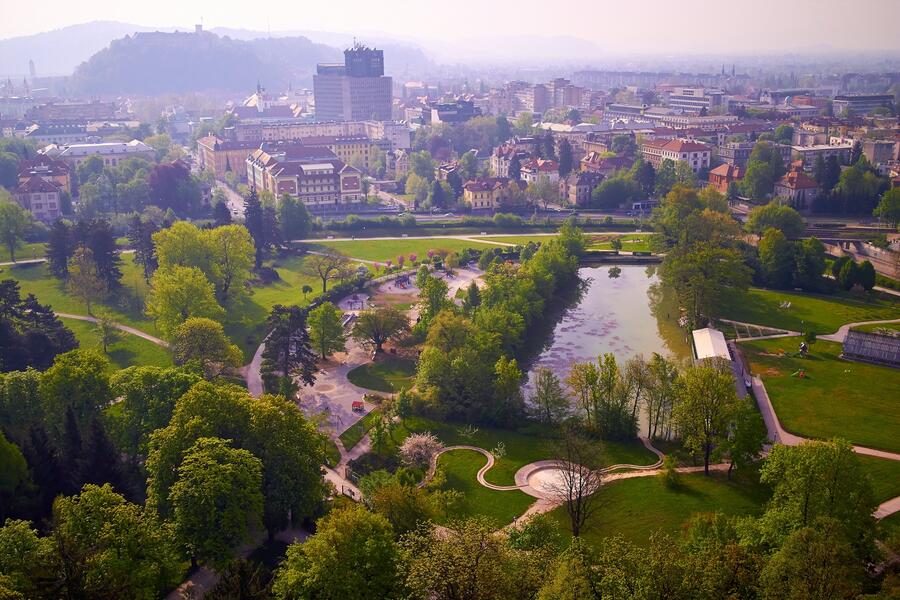Project UHI Concluded
The City of Ljubljana has successfully concluded the second phase of the UHI project (Urban Heat Island) with a positive control report issued by the company Ernst & Young in Vienna.
The project in which eighteen partners from seven European Union countries participated was conducted between May 2011 and July 2014. The aim of the project was to define and analyse the urban heat island (UHI) phenomenon in participating cities, and within its framework the methodology for the determination of the UHI phenomenon was developed and recommendations for its mitigation and adaptation to the effect were prepared.
The Urban Heat Island is an area where dense land development and waste heat from human activities (in the forefront are especially air conditioning units and internal combustion engines) cause an increase of temperature in urban areas in comparison to the surrounding rural area. The introduction of new green and water surfaces into the city and the opening of fresh air corridors can alleviate the urban heat island effect.
Within the framework of the UHI project some pilot measures were carried out, among them pocket parks on streets with parking spaces on both sides of the street, a work-out house with a green roof and air quality measurements for carbon dioxide, benzene and ozone.
The Regional Agency for Environment Protection in Emilia-Romagna (Italy) was the head partner of the UHI project. There were 17 additional partners: Emilia-Romagna and Veneto Regions (Italy), the cities of Bologna, Modena, Venice, Padua (Italy), Vienna (Austria), Stuttgart (Germany), Lodz, Warsaw (Poland), Budapest (Hungary), Prague (the Czech Republic) and Ljubljana, as well as institutes from Freiburg and Karlsruhe (Germany), Vienna (Austria) and Prague (the Czech Republic).
The project was conducted within the Central Europe Programme and was co-financed from the European Union Regional Development Fund. All justified costs of the City of Ljubljana for the implementation of the project were approved.
Details on the UHI project are available at the website www.eu-uhi.eu.


